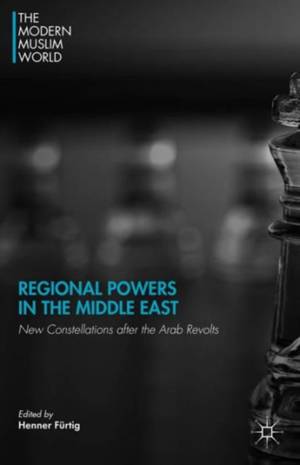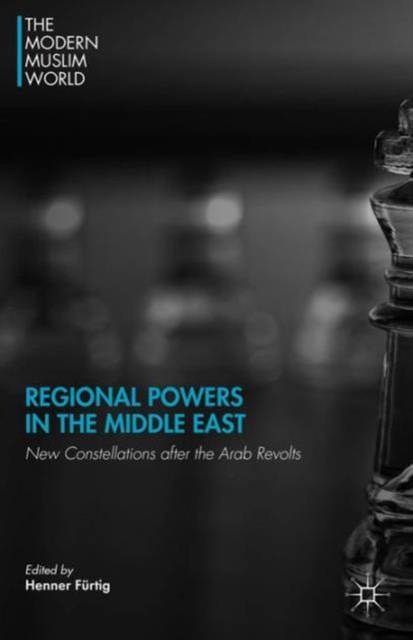
Je cadeautjes zeker op tijd in huis hebben voor de feestdagen? Kom langs in onze winkels en vind het perfecte geschenk!
- Afhalen na 1 uur in een winkel met voorraad
- Gratis thuislevering in België vanaf € 30
- Ruim aanbod met 7 miljoen producten
Je cadeautjes zeker op tijd in huis hebben voor de feestdagen? Kom langs in onze winkels en vind het perfecte geschenk!
- Afhalen na 1 uur in een winkel met voorraad
- Gratis thuislevering in België vanaf € 30
- Ruim aanbod met 7 miljoen producten
Zoeken
Regional Powers in the Middle East
New Constellations After the Arab Revolts
€ 83,95
+ 167 punten
Omschrijving
With theoretically-rich contributions from an international group of political scientists, historians, and economists, this volume addresses the puzzle of why the Middle East has produced no single dominant and acknowledged regional power, despite contenders such as Egypt, Saudi Arabia, Iran, Israel, and Turkey. Rich, theoretically-engaged case study chapters address a gap in the vibrant international academic discussion on the role of (new) regional powers in global politics. Fürtig offers powerful insights into both the unique nature of the Middle East region, with its dispersed power structures and competing centers, and probable new power constellations.
Specificaties
Betrokkenen
- Uitgeverij:
Inhoud
- Aantal bladzijden:
- 239
- Taal:
- Engels
- Reeks:
Eigenschappen
- Productcode (EAN):
- 9781137484741
- Verschijningsdatum:
- 18/12/2014
- Uitvoering:
- Hardcover
- Formaat:
- Genaaid
- Afmetingen:
- 140 mm x 216 mm
- Gewicht:
- 385 g

Alleen bij Standaard Boekhandel
+ 167 punten op je klantenkaart van Standaard Boekhandel
Beoordelingen
We publiceren alleen reviews die voldoen aan de voorwaarden voor reviews. Bekijk onze voorwaarden voor reviews.








